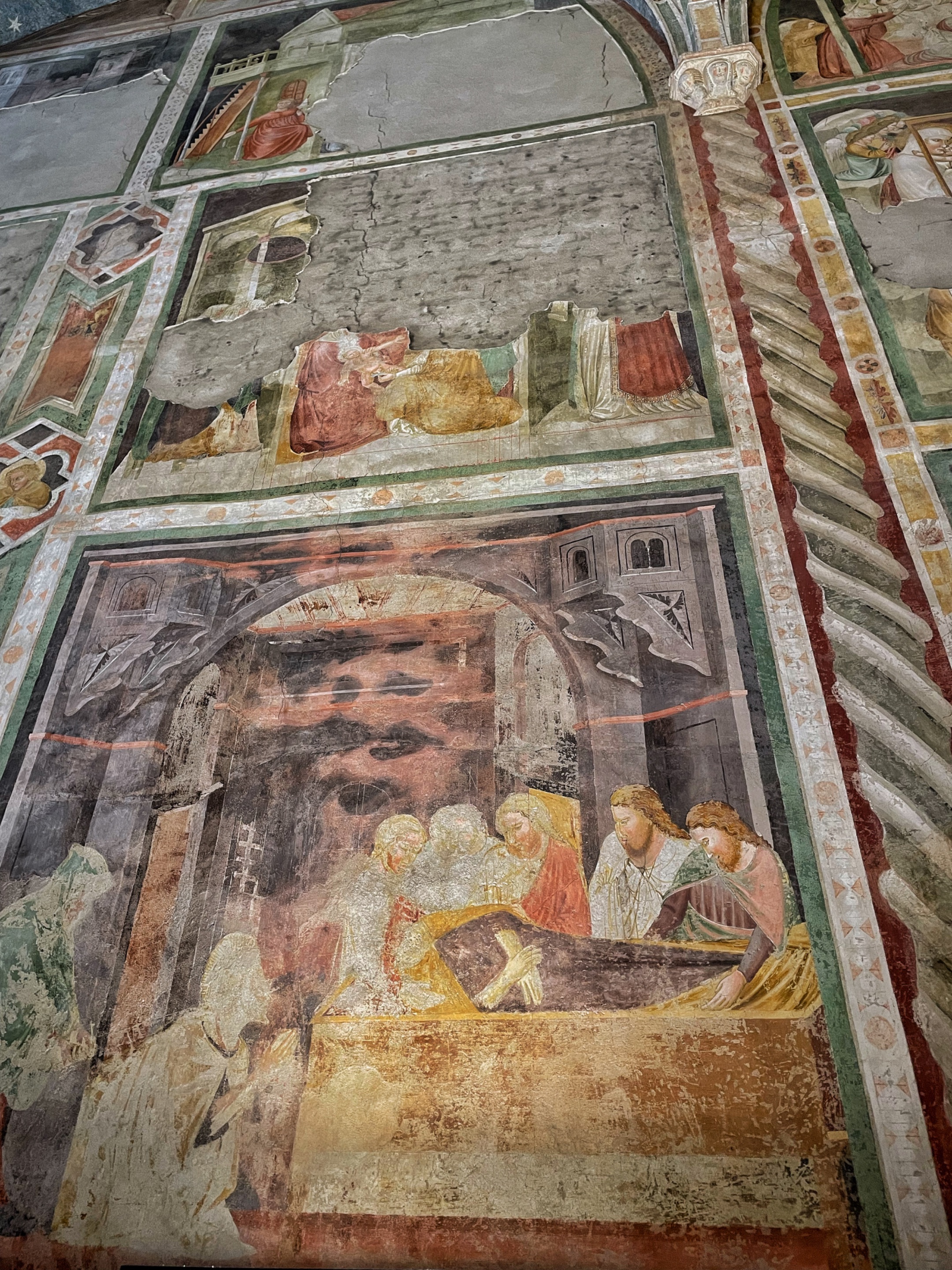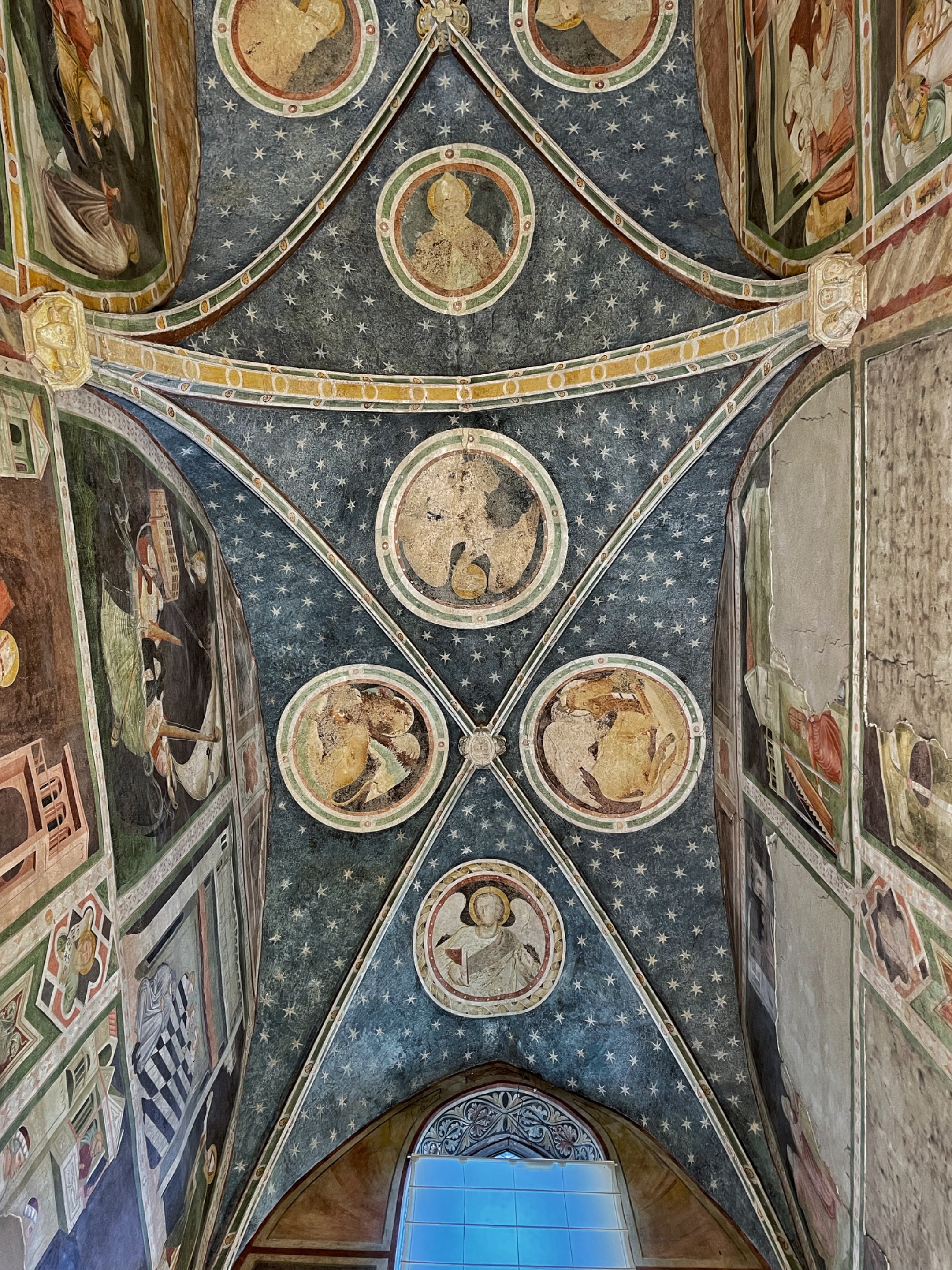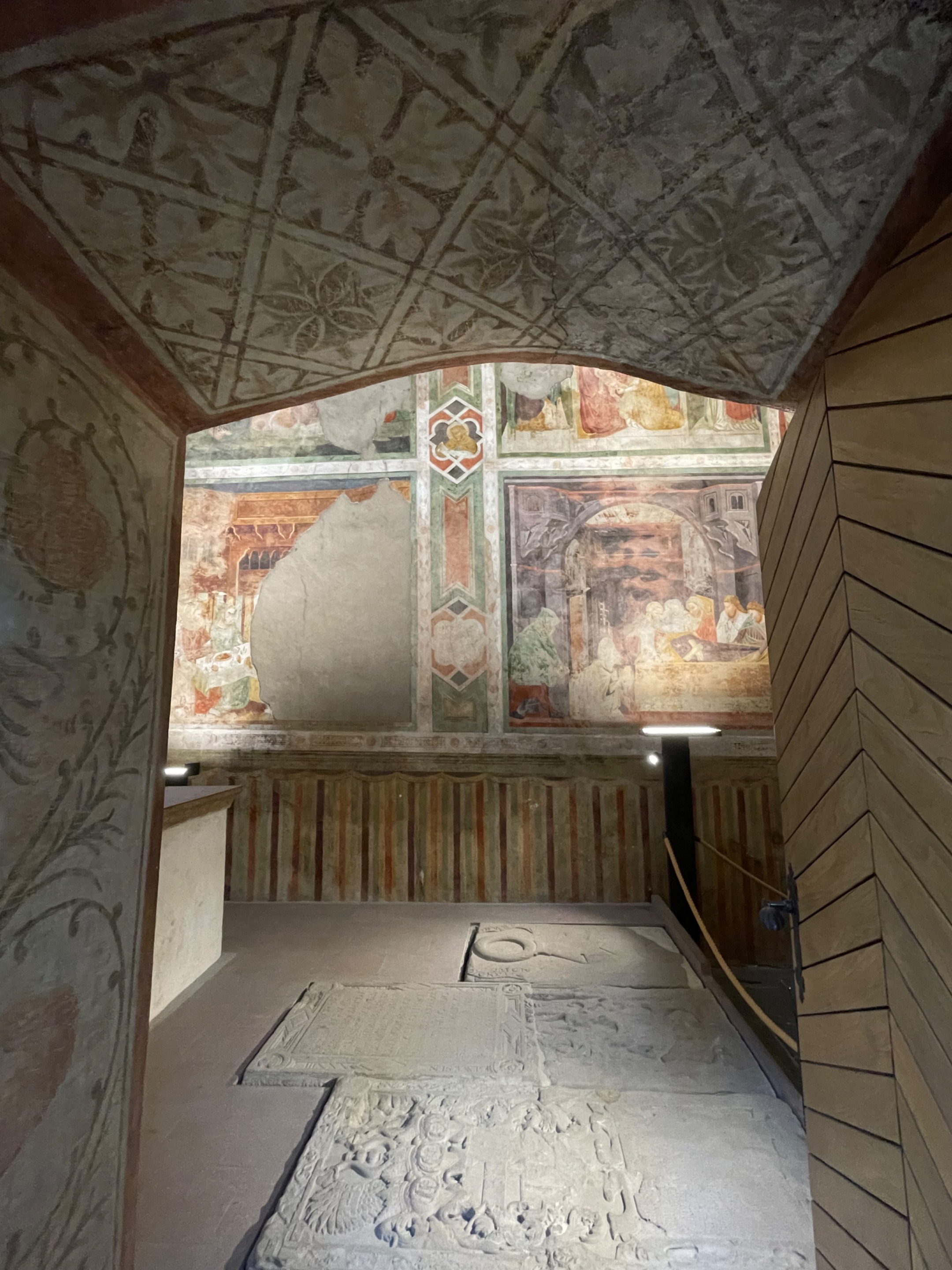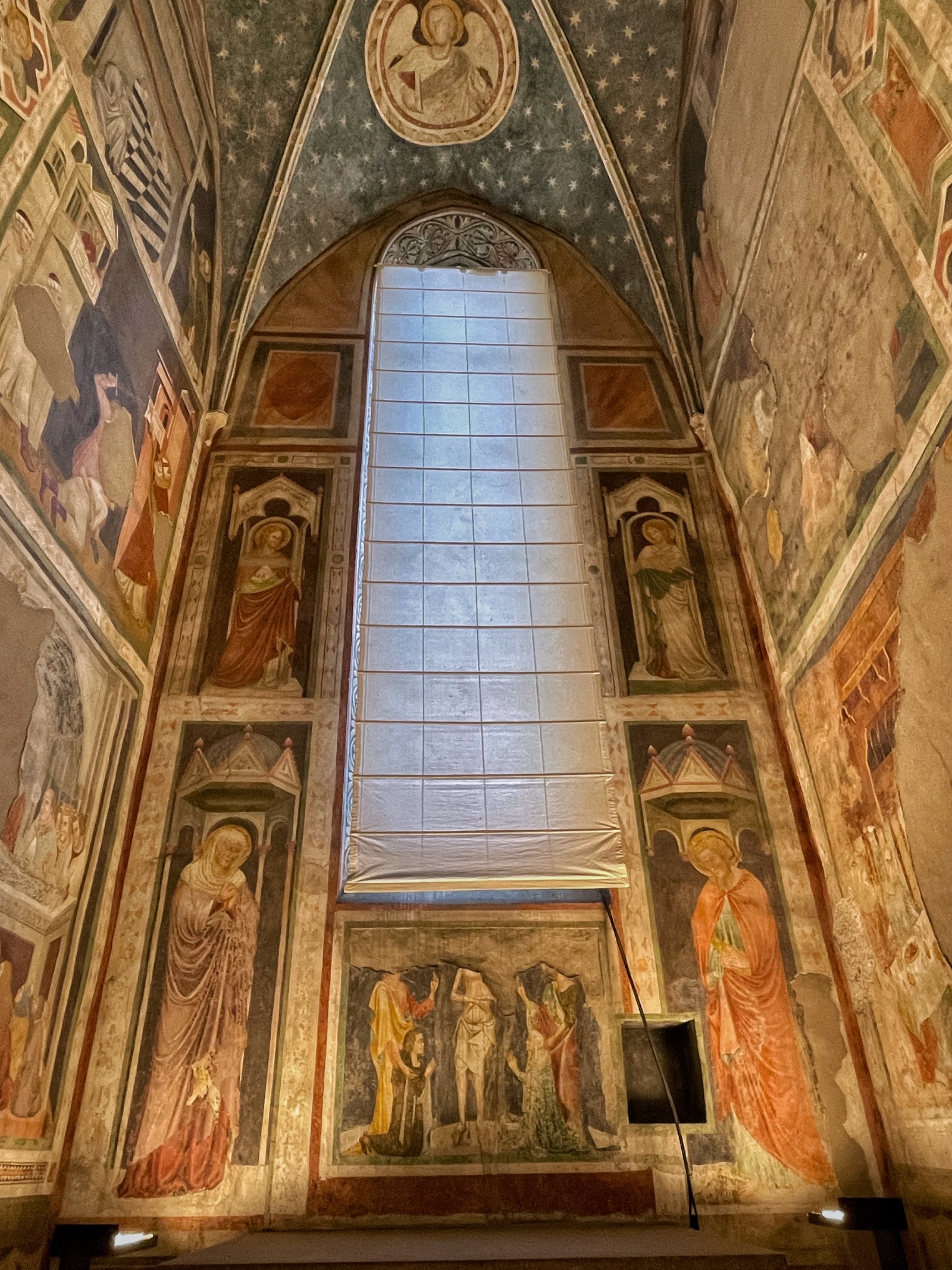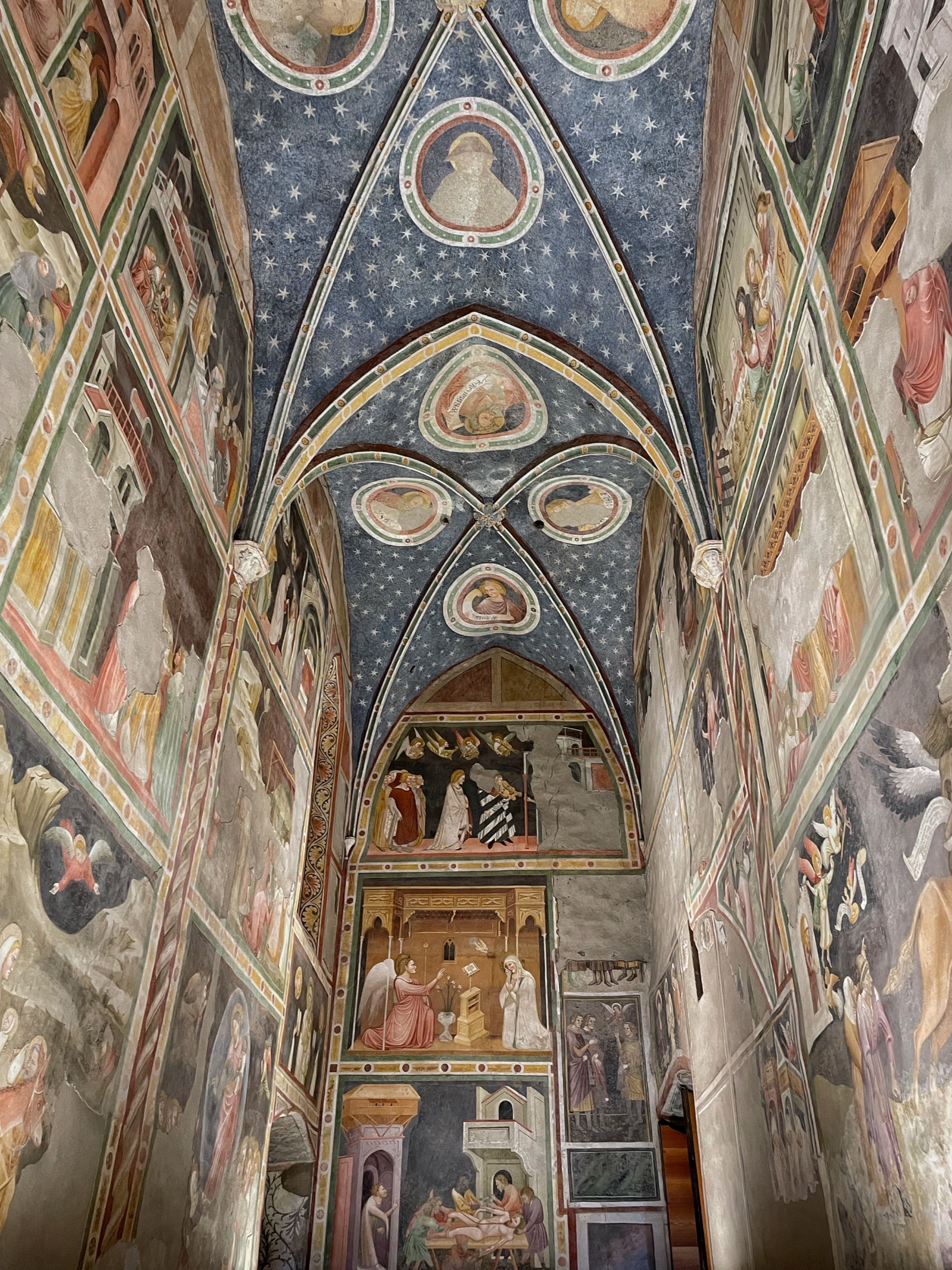ENG/ITA
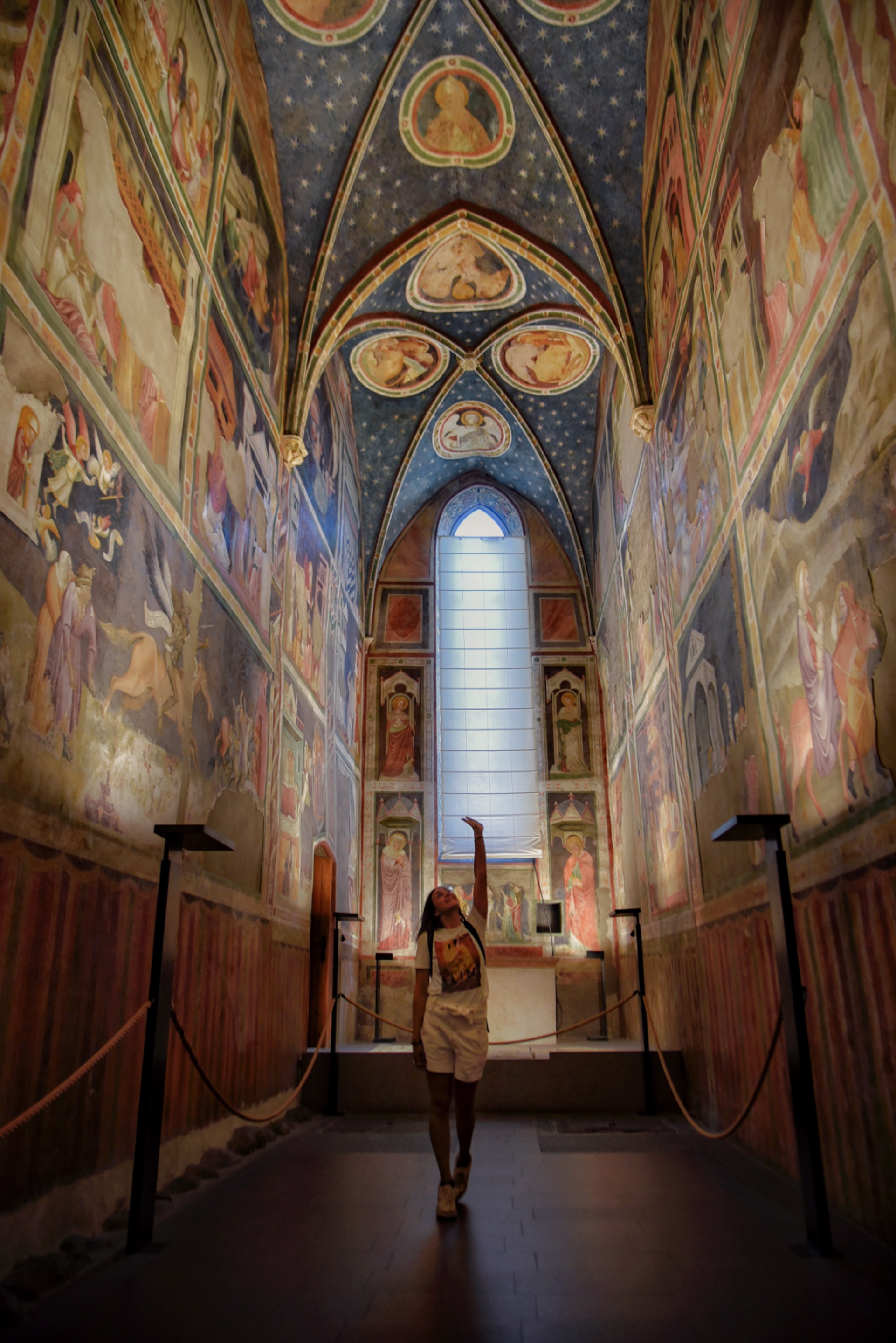
Hi friends of Hive,
Are you ready for a new journey to discover Italy?
Today I want to take you to Bolzano, a splendid city in South Tyrol and an autonomous
province, where two cultures coexist and intertwine: the Italian and the Austrian.
Ciao amici di Hive,
siete pronti per un nuovo viaggio alla scoperta dell’Italia?
Oggi voglio portarvi a Bolzano, splendida città dell’Alto Adige e provincia autonoma,
dove convivono e si intrecciano due culture: quella italiana e quella austriaca.
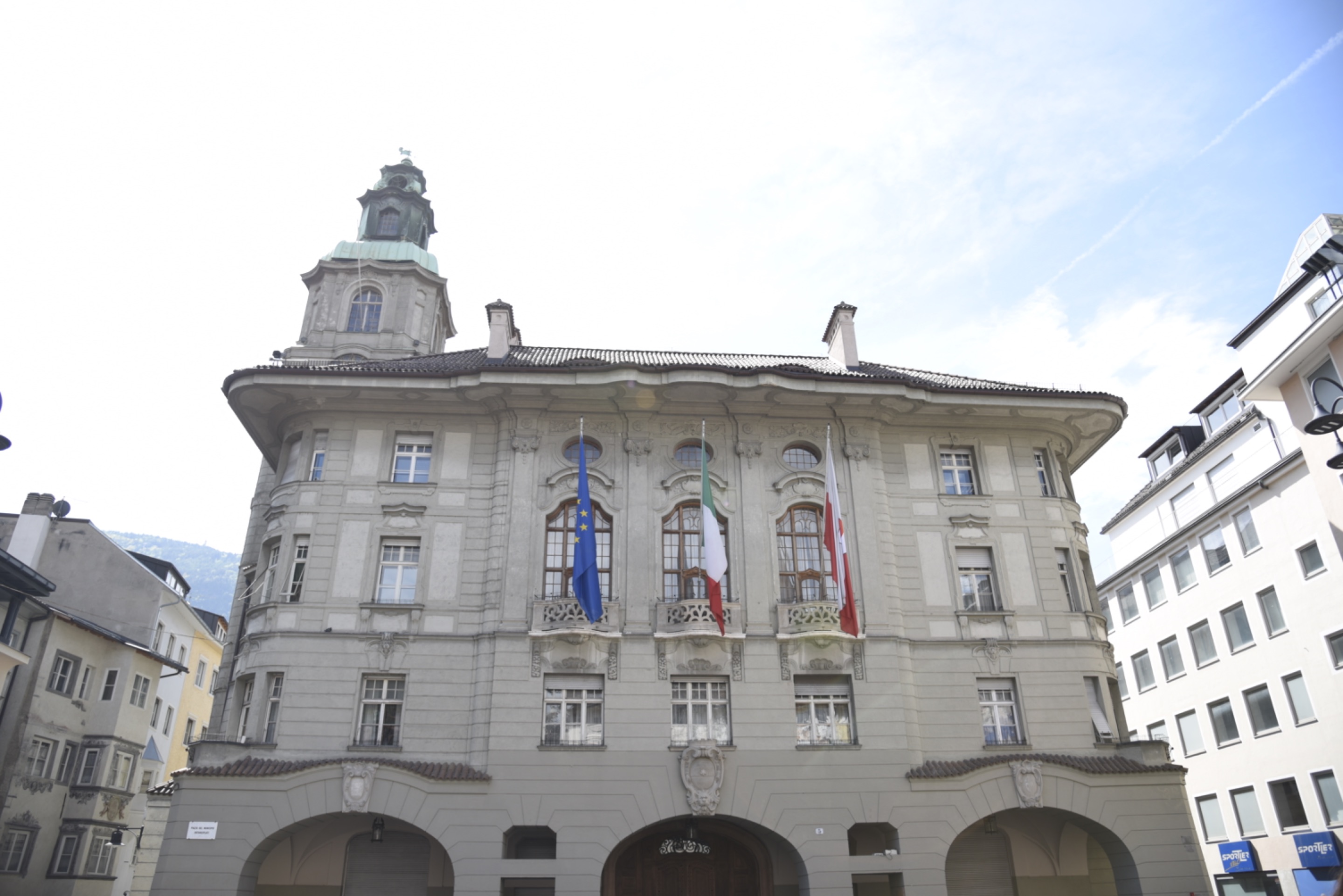
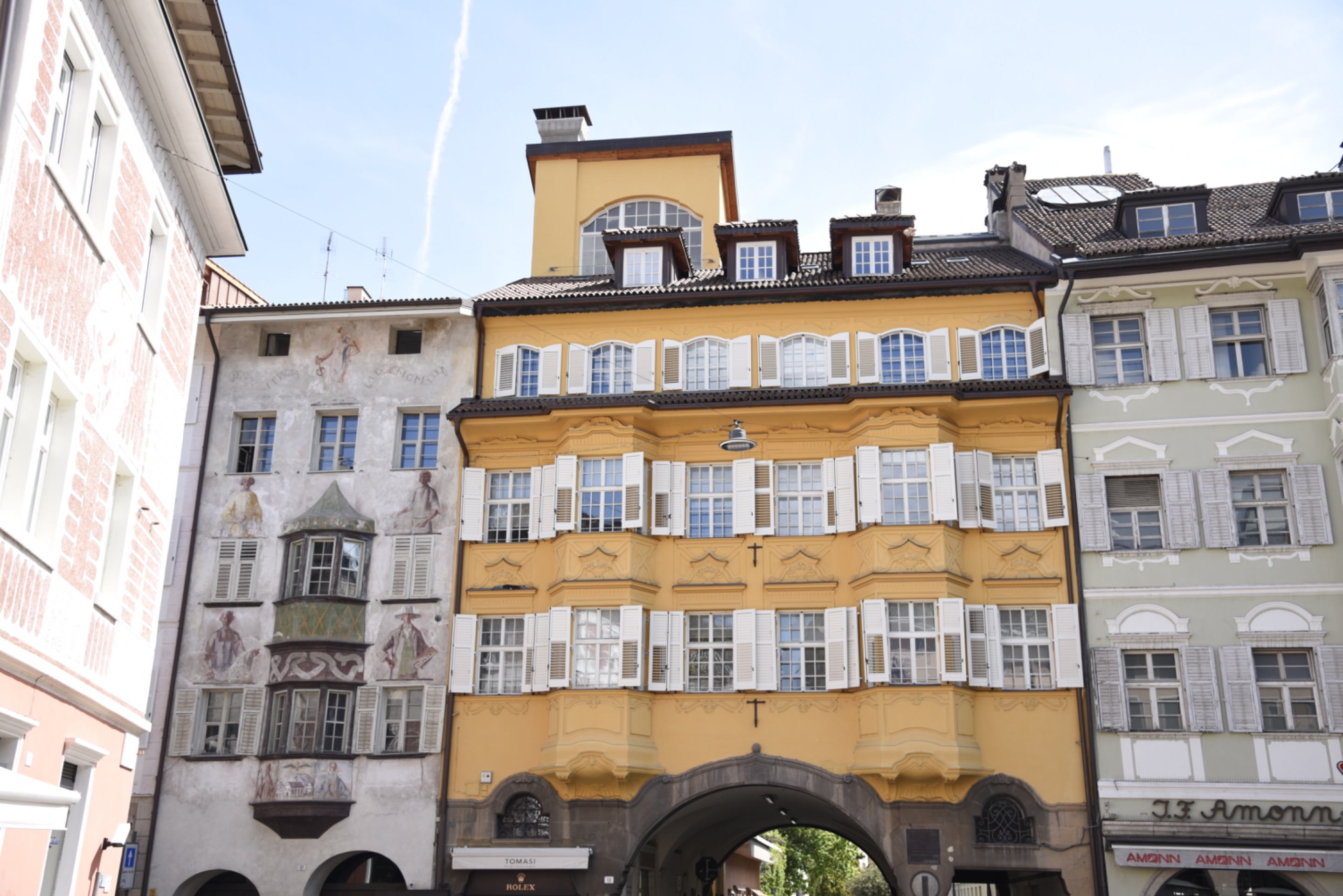
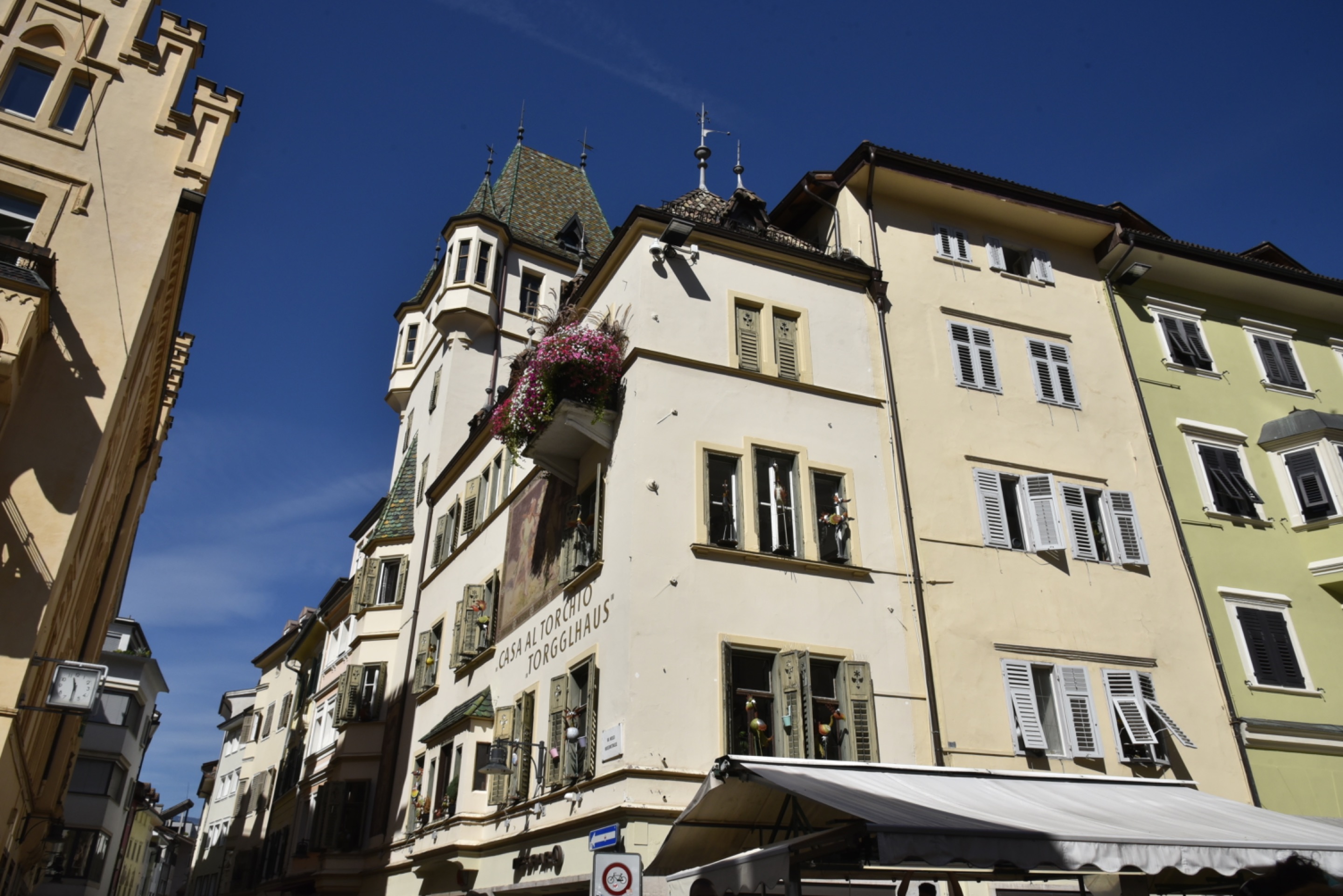
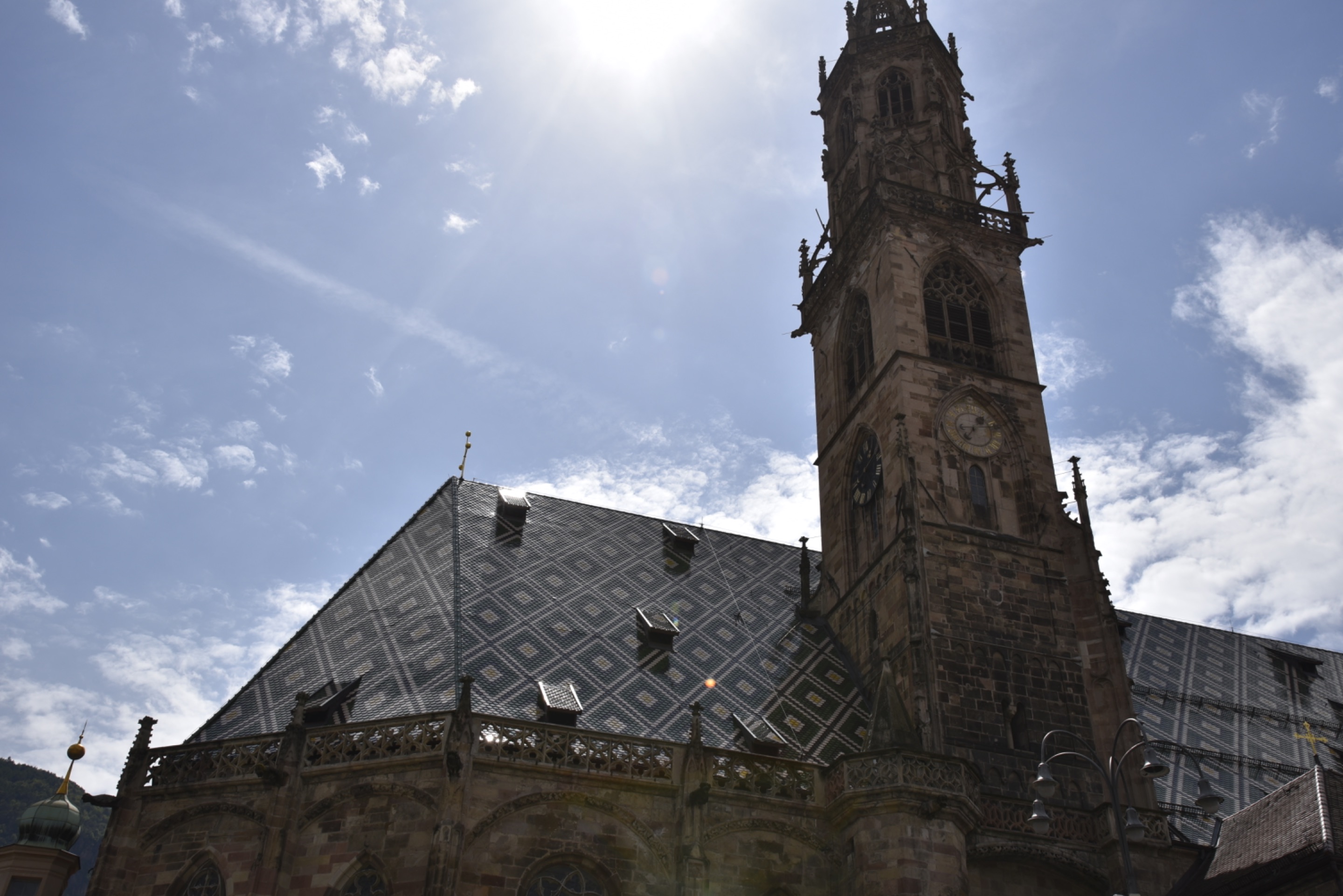
The history
The city of Bolzano has been inhabited since prehistoric times and has been a meeting
point for numerous peoples and civilizations over the centuries. However, it was under
the Habsburg Empire that it experienced its greatest splendor and acquired a role of
great importance. With the First World War it was annexed to Italy in 1919: a relatively
recent event, which is why the Austrian heritage is still very present today.
The inhabitants are deeply attached to this identity and wish to preserve it: it is no
coincidence that schools in Tyrol are bilingual.
As soon as I arrived, knowing her story, I had the feeling of being in a border land,
almost suspended between Italy and Austria. Shop signs, directions and even restaurant
menus are written in both German and Italian. This strong attachment to “Nordic”
culture is perceived everywhere and is an integral part of the charm of Bolzano.
La Storia
La città di Bolzano è abitata fin dalla preistoria ed è stata nei secoli punto d’incontro di
numerosi popoli e civiltà. Fu però sotto l’Impero asburgico che conobbe il suo massimo
splendore e acquisì un ruolo di grande importanza. Con la Prima guerra mondiale
venne annessa all’Italia, nel 1919: un avvenimento relativamente recente, motivo per cui
ancora oggi l’eredità austriaca è molto presente.
Gli abitanti sono profondamente legati a questa identità e desiderano preservarla: non a
caso, nel Tirolo le scuole sono bilingue.
Appena arrivata, conoscendo la sua storia, ho avuto la sensazione di trovarmi in una
terra di confine, quasi sospesa tra Italia e Austria. Le insegne dei negozi, le indicazioni
stradali e persino i menù dei ristoranti sono scritti sia in tedesco che in italiano. Questo
forte attaccamento alla cultura “nordica” si percepisce ovunque ed è parte integrante
del fascino di Bolzano.
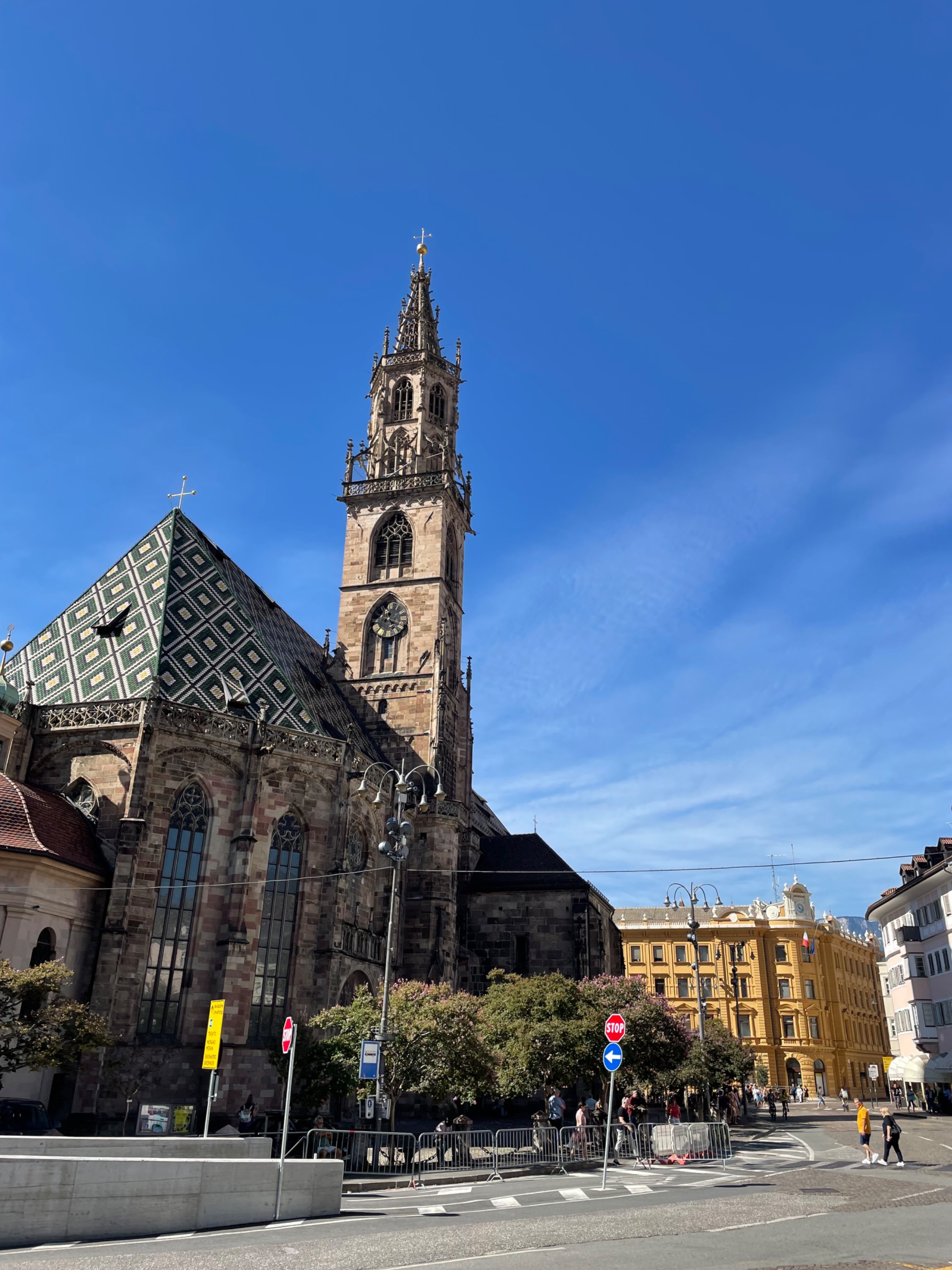
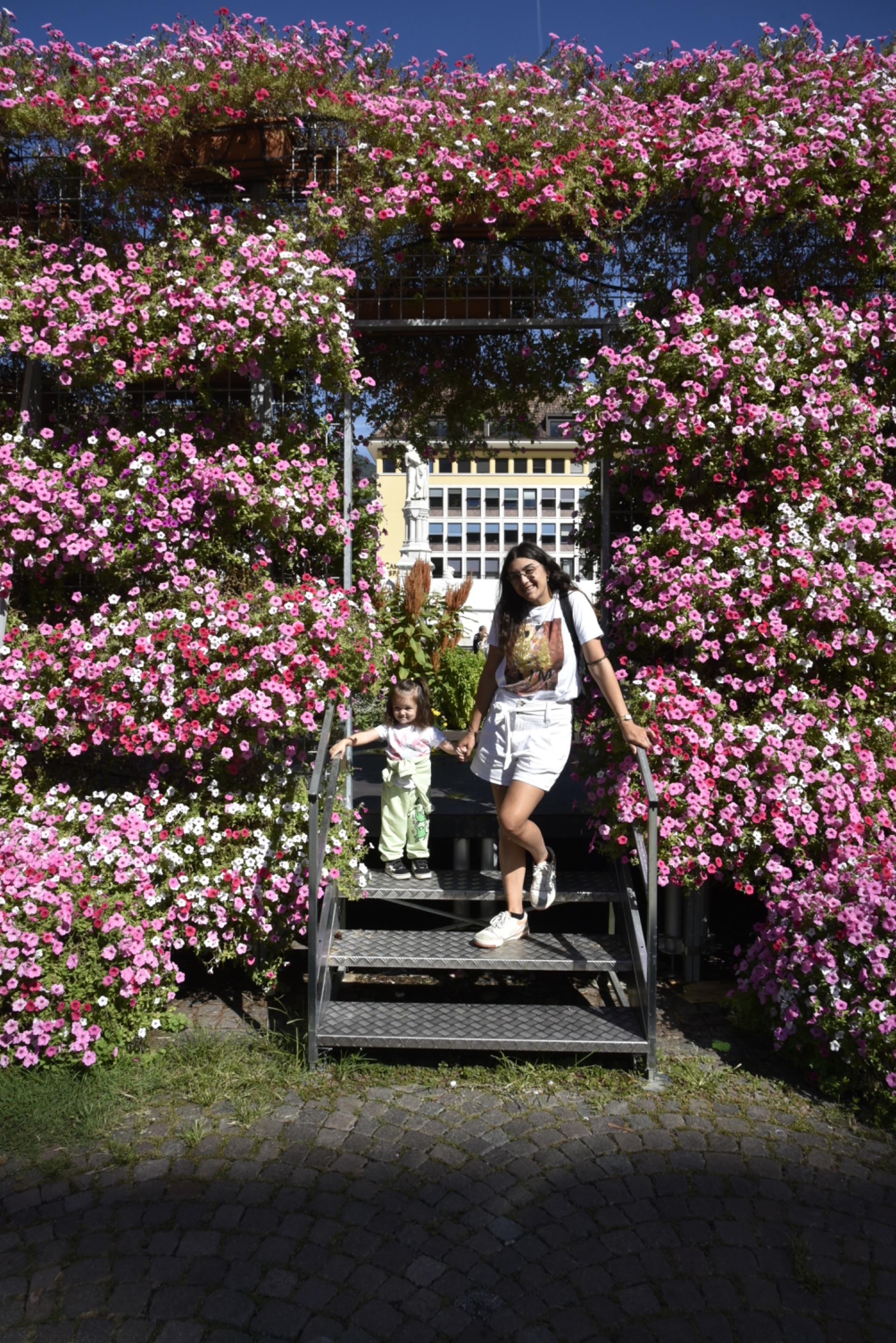

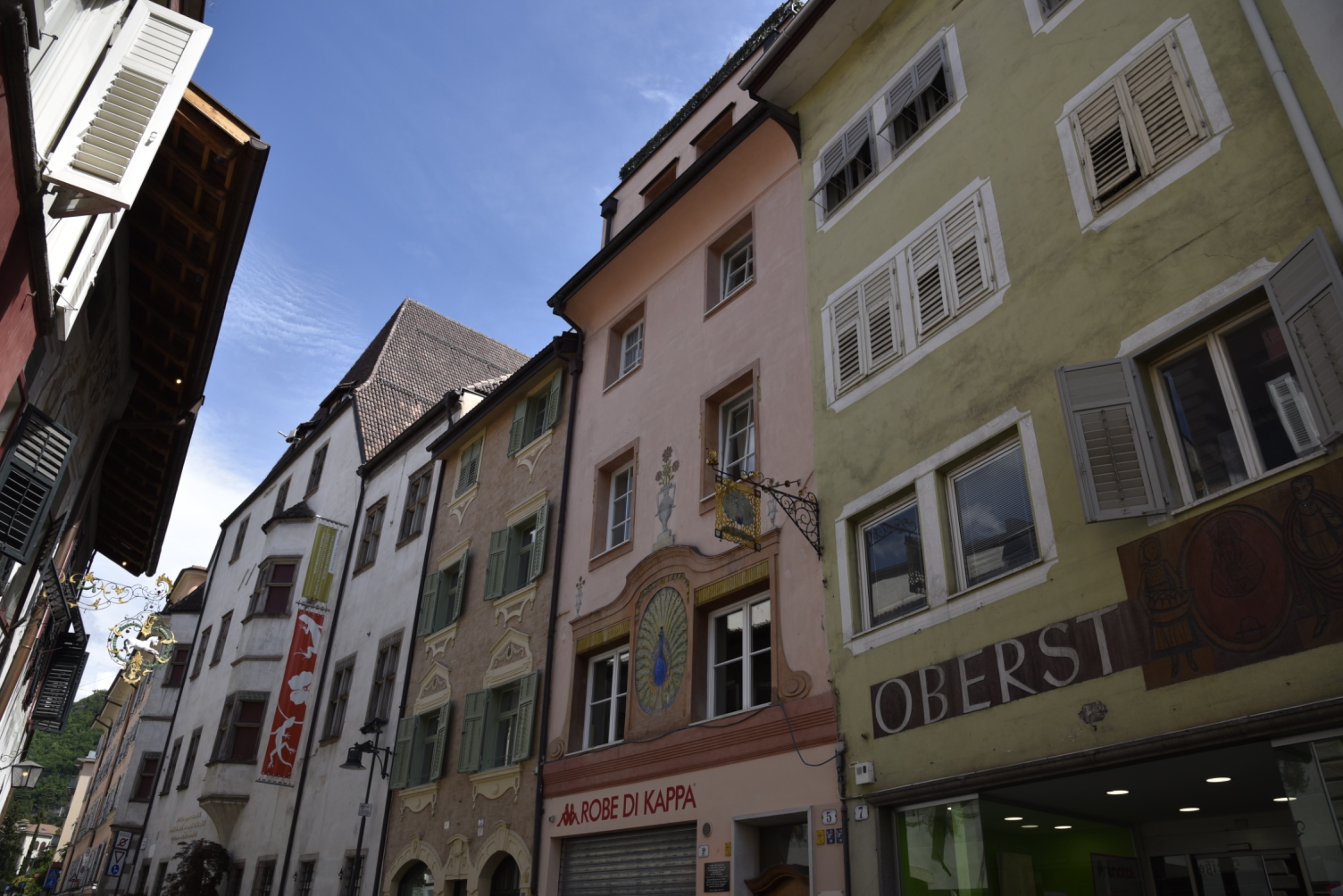
The historic center of Bolzano is quite intimate, characterized by its elegant regular
porticoes which house numerous shops. While walking, you often come across local
markets, where you can taste the typical products of the area, including the inevitable
and very famous Brezel.
Already upon arrival the gaze is captured by the Duomo, with its splendid pointed roof
that recalls the architecture of Northern Europe.
The city is also nestled in the Dolomites, and walking through its streets it is truly
fascinating to observe how man and nature manage to coexist in perfect harmony.
Il centro storico di Bolzano è piuttosto raccolto, caratterizzato dai suoi eleganti portici
regolari che ospitano numerosi negozi. Passeggiando, capita spesso di imbattersi in
mercati locali, dove è possibile assaggiare i prodotti tipici della zona, tra cui
l’immancabile e famosissimo Brezel.
Già all’arrivo lo sguardo viene catturato dal Duomo, con il suo splendido tetto a punta
che richiama l’architettura del Nord Europa.
La città è inoltre incastonata tra le Dolomiti, e camminando tra le sue vie è davvero
affascinante osservare come l’uomo e la natura riescano a convivere in perfetta
armonia.



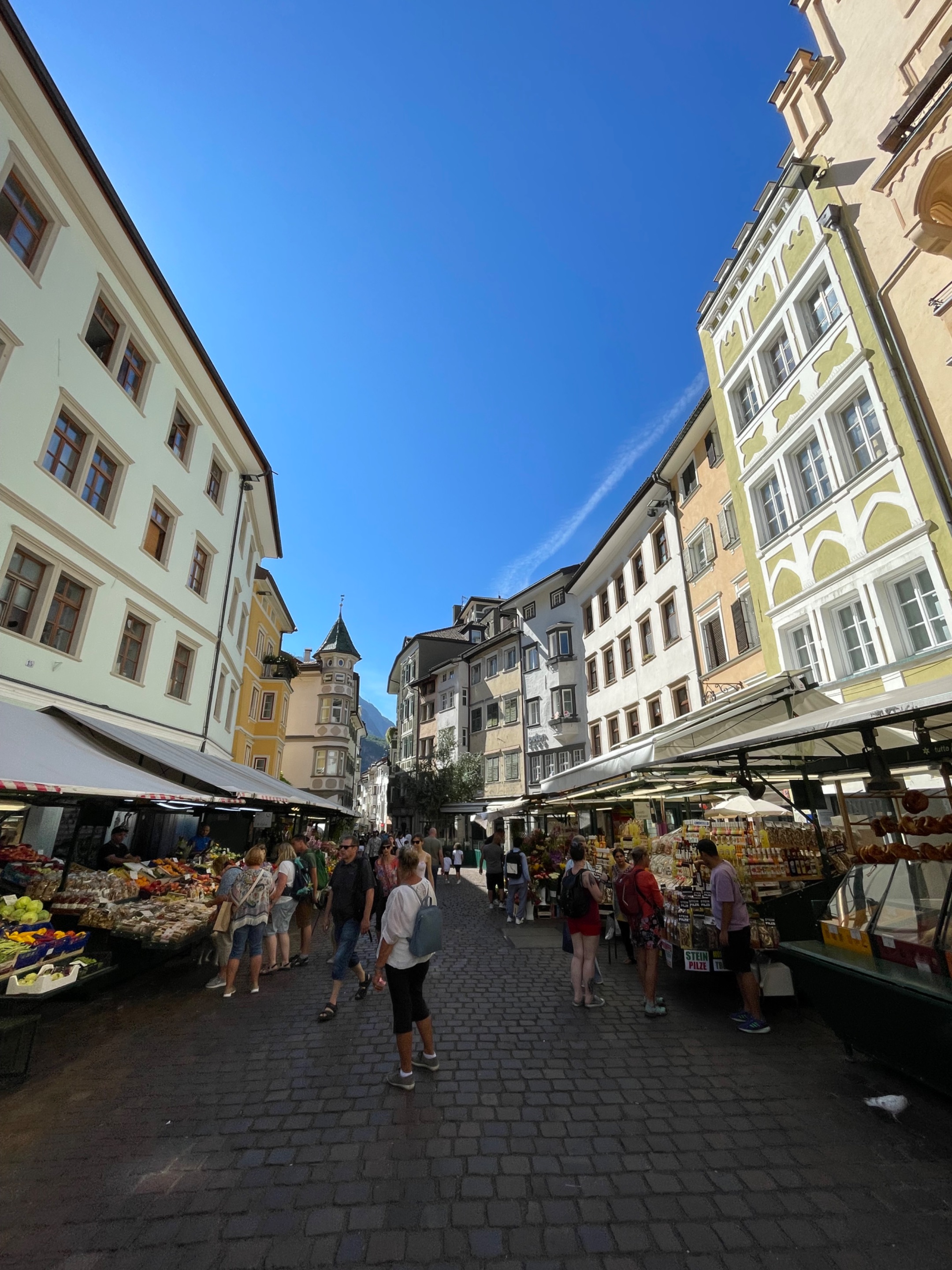
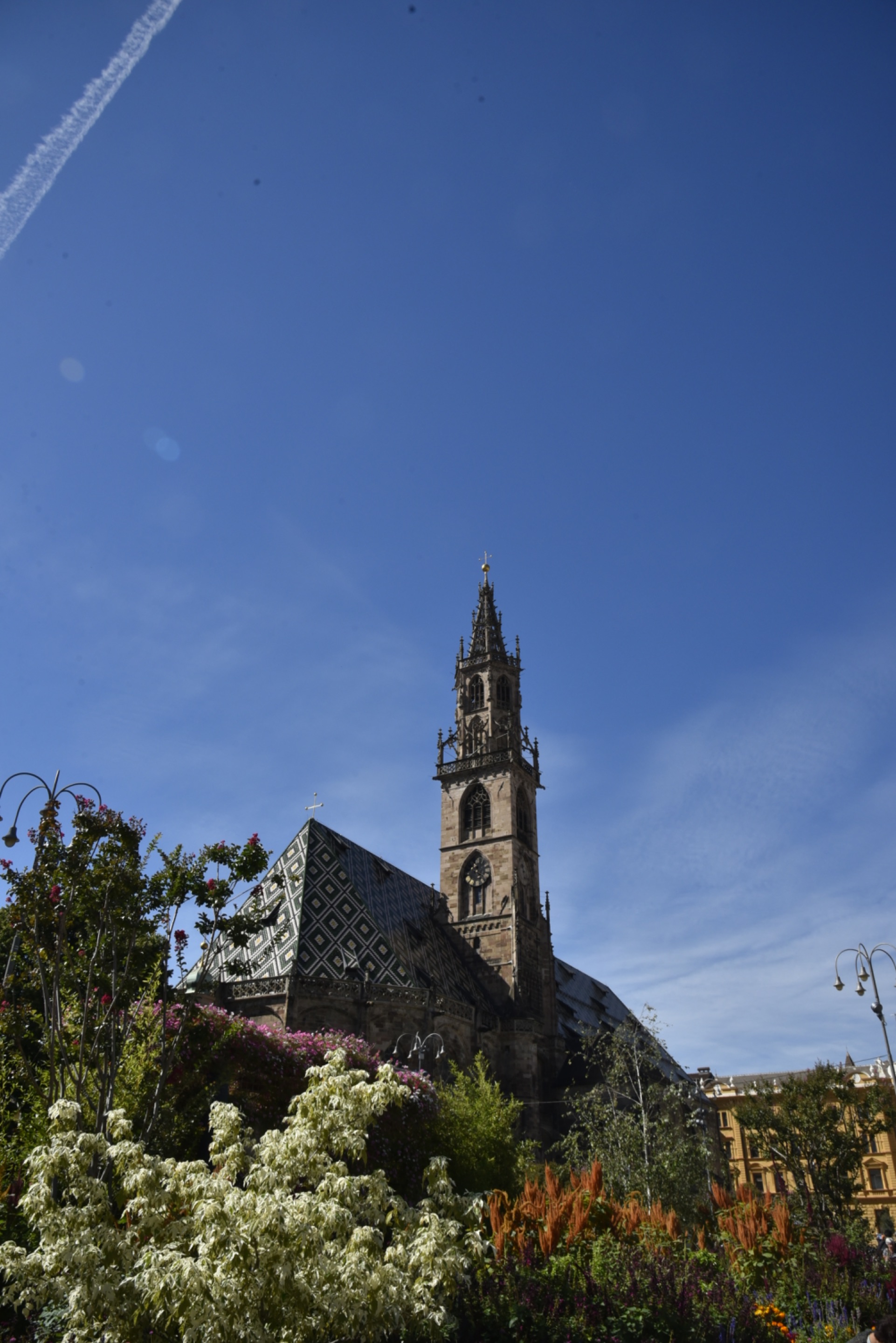
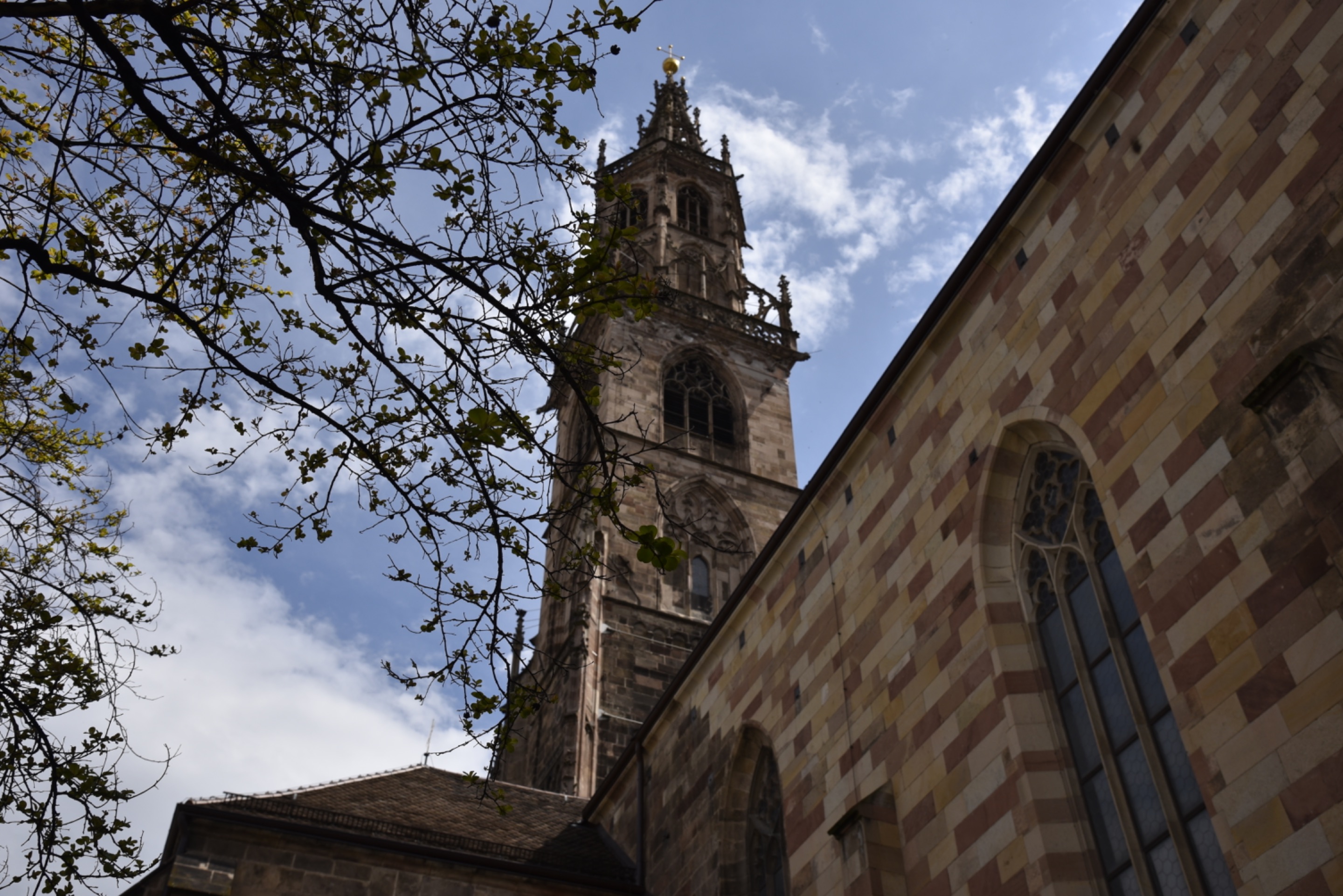
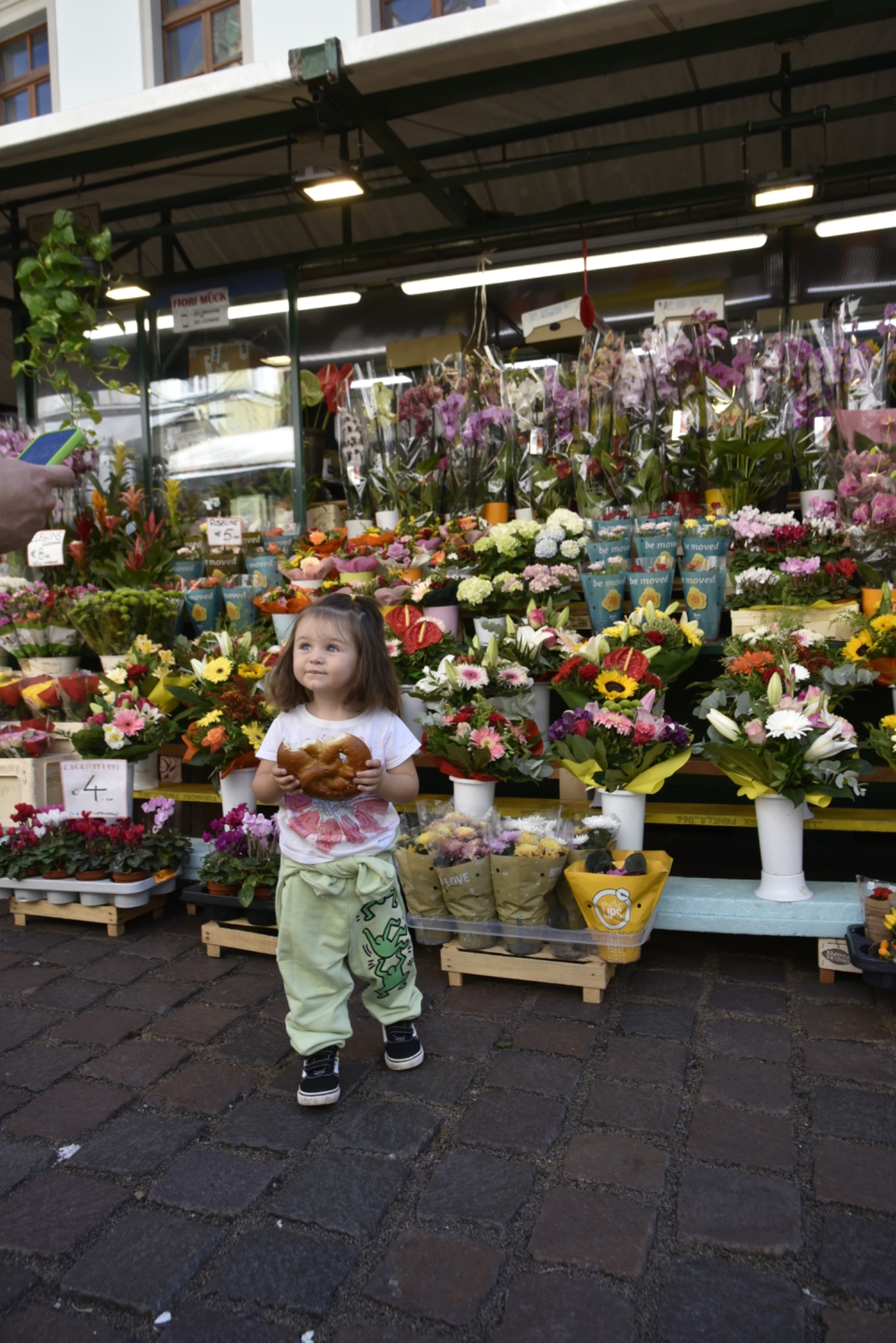
The Dominican Church
An unmissable jewel for those visiting Bolzano is the Dominican Church.
On the outside it appears like a simple church, sober and devoid of particular
decorations, but once it crosses the threshold it reveals an authentic treasure.
Built in the 13th century by Dominican friars, it houses the splendid Chapel of San
Giovanni, decorated at the beginning of the 14th century. Here there is a cycle of
frescoes of extraordinary importance, attributed to the Giotto school for its evident
affinity with those of the Scrovegni Chapel in Padua. The starry sky, the scenes from the
lives of the saints and the evangelical episodes perfectly reflect the artistic language
typical of that era and of Giotto's tradition.
These frescoes are considered among the most significant pictorial cycles in South Tyrol,
and I assure you that once you enter you will be captivated by their beauty.
La Chiesa dei Domenicani
Un gioiello imperdibile per chi visita Bolzano è la Chiesa dei Domenicani.
All’esterno appare come una semplice chiesetta, sobria e priva di particolari
decorazioni, ma una volta varcata la soglia rivela un autentico tesoro.
Edificata nel XIII secolo dai frati domenicani, custodisce infatti la splendida Cappella di
San Giovanni, decorata agli inizi del Trecento. Qui si conserva un ciclo di affreschi di
straordinaria importanza, attribuito alla scuola giottesca per la sua evidente affinità con
quelli della Cappella degli Scrovegni a Padova. Il cielo stellato, le scene della vita dei
santi e gli episodi evangelici riflettono perfettamente il linguaggio artistico tipico di
quell’epoca e della tradizione di Giotto.
Questi affreschi sono considerati tra i cicli pittorici più significativi dell’Alto Adige, e vi
assicuro che una volta entrati rimarrete rapiti dalla loro bellezza.
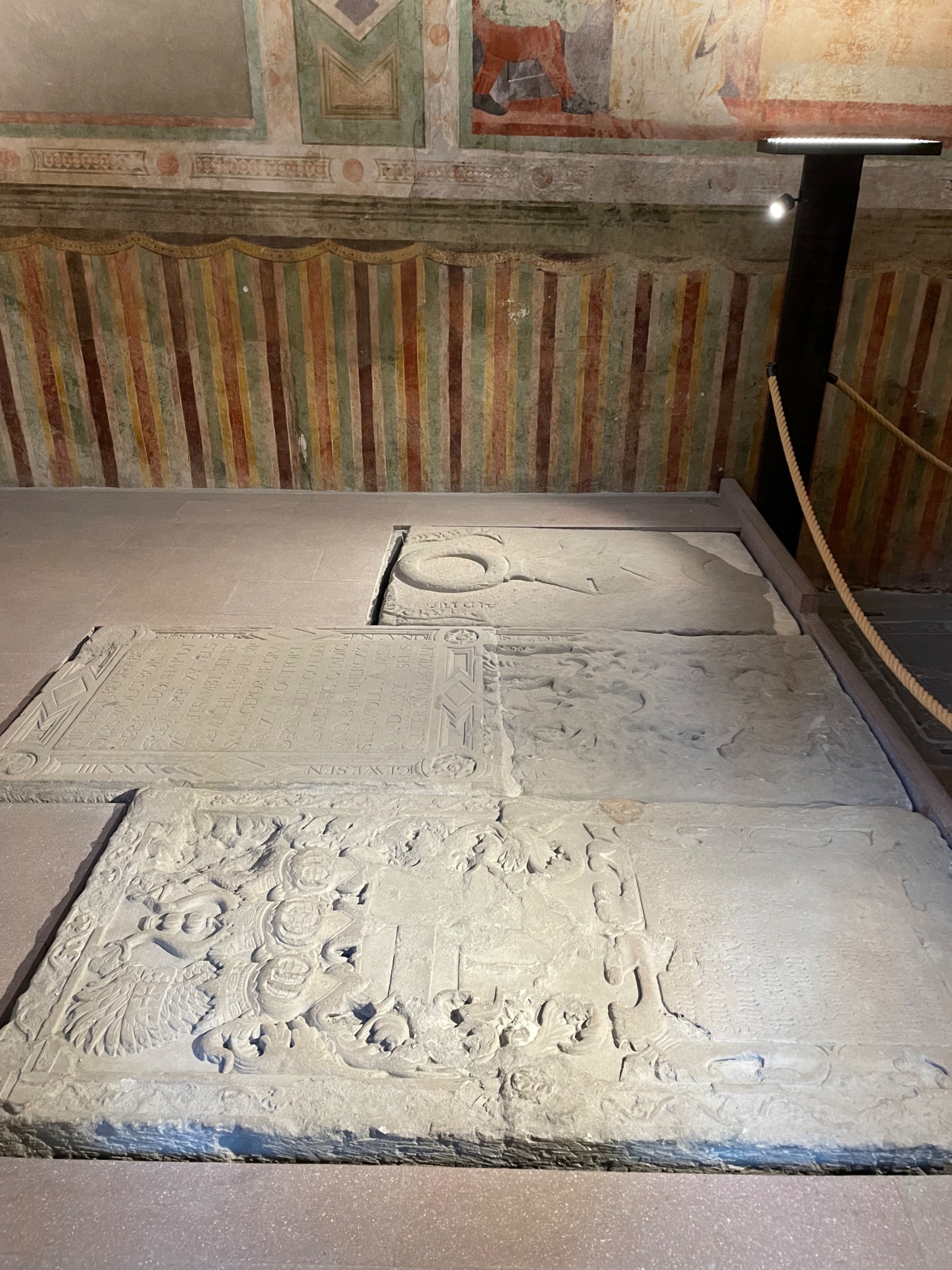
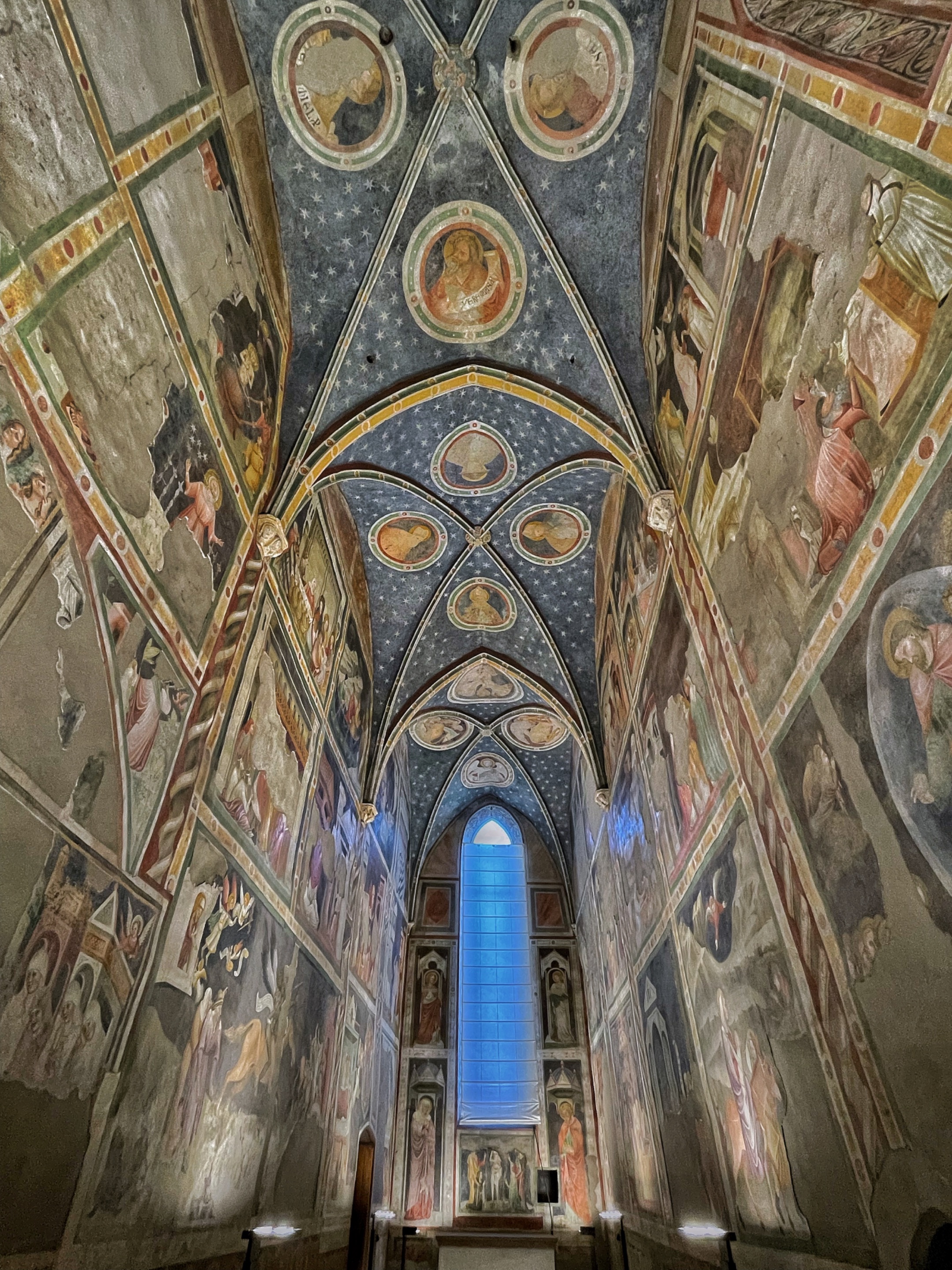
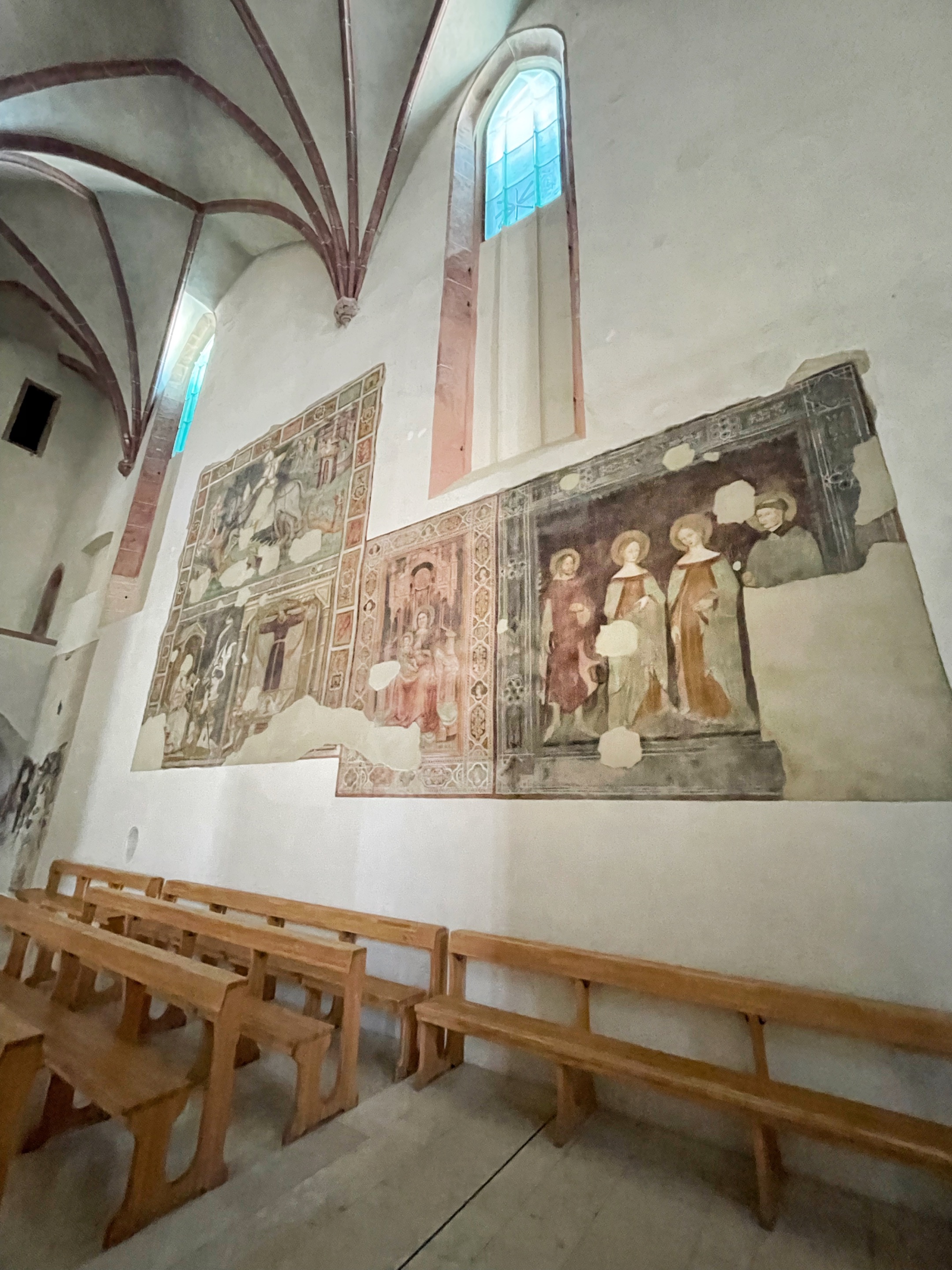
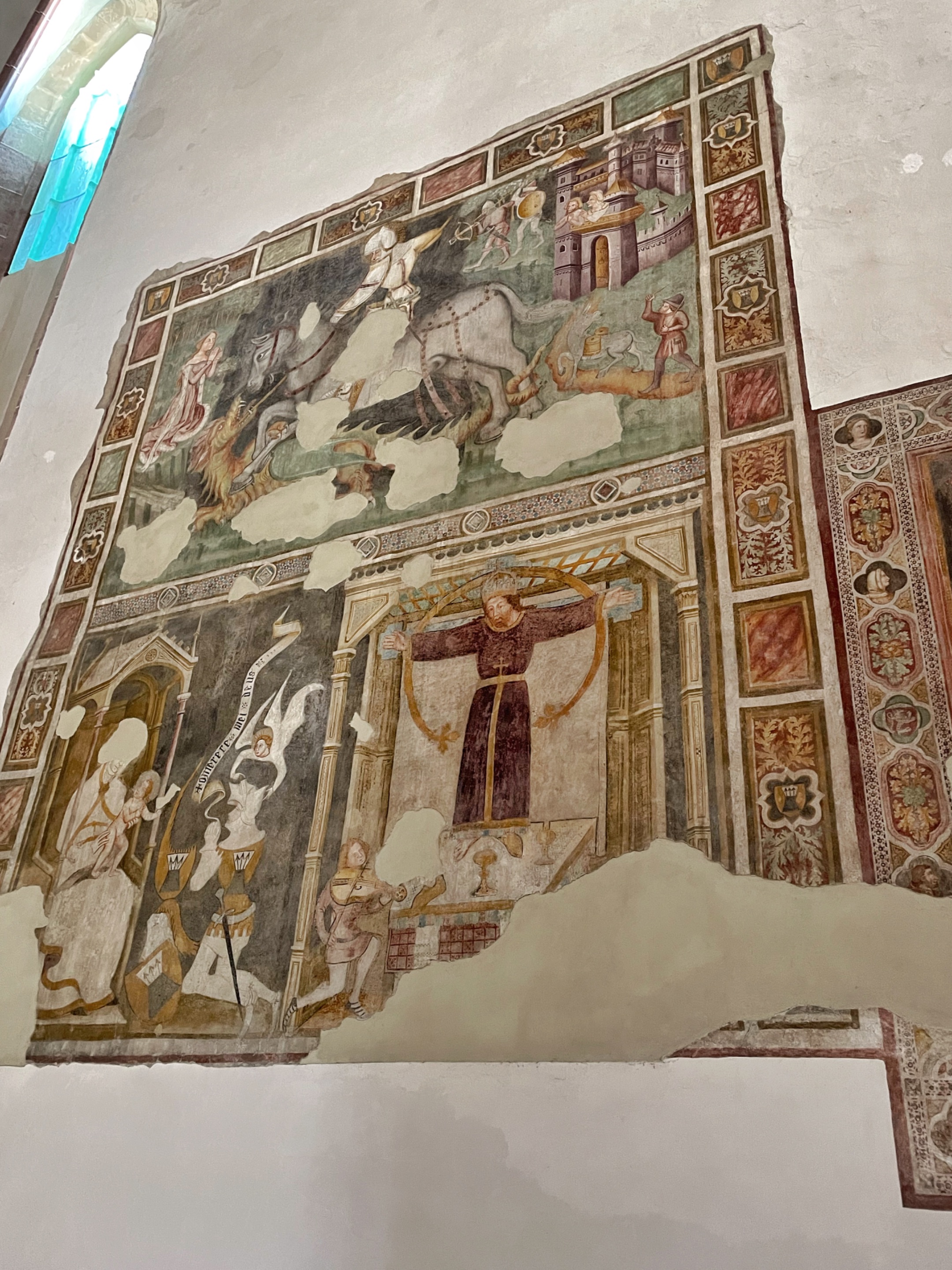



Personally, within the Church, I felt a sense of wonder that was difficult to explain. I
expected a simple and bare church, as I had seen it from the outside, and instead I
found myself in front of a small treasure chest of art that left me speechless.
For me, the Chapel of San Giovanni is one of those places where time seems to stop: you
sit, look up and let yourself be carried away by the colors and stories painted centuries
ago. It was undoubtedly one of the most evocative experiences of my trip to Bolzano.
I assure you that if you enter, you too will be enchanted by its beauty.
I'll wait for you in the next post!
Claere
Personalmente, all’interno della Chiesa, ho provato un senso di meraviglia difficile da
spiegare. Mi aspettavo una chiesa semplice e spoglia, come l’avevo vista da fuori, e
invece mi sono ritrovata davanti a un piccolo scrigno d’arte che mi ha lasciata senza
parole.
Per me, la Cappella di San Giovanni è uno di quei luoghi in cui il tempo sembra
fermarsi: ti siedi, alzi lo sguardo e ti lasci trasportare dai colori e dalle storie dipinte
secoli fa. È stata senza dubbio una delle esperienze più suggestive del mio viaggio a
Bolzano.
Vi assicuro che, se entrerete, rimarrete anche voi ammaliati dalla sua bellezza.
Vi aspetto al prossimo post!
Claere
